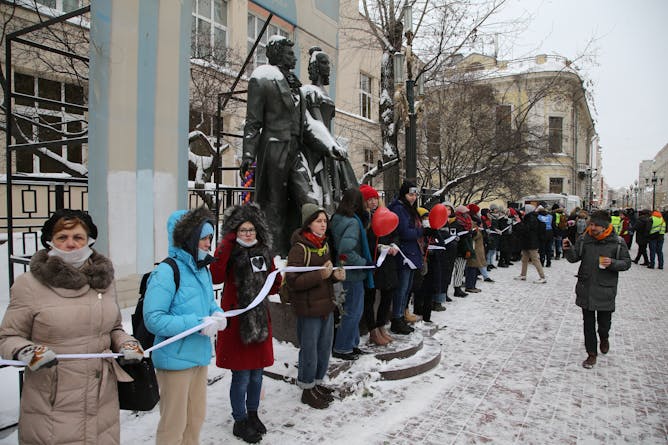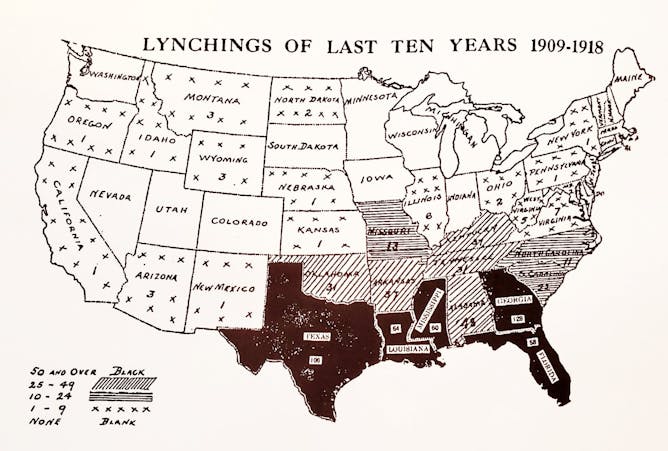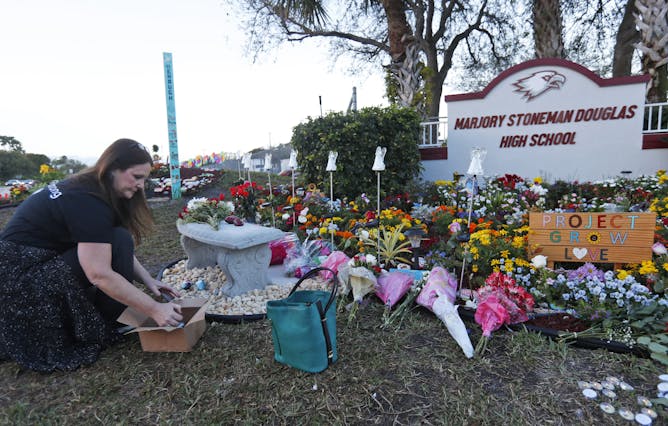|
The articles you read in The Conversation have a variety of origins. One story this week began with a pitch from a scholar who said, essentially, “Everyone’s talking about Trump and fascism. How about I do an explainer on what fascism really is?” Bingo: Something in the news that needs context and better definition. We commissioned it.
Other stories originate when an editor gets intrigued by something and sees a possible story in it. That’s what happened to me several weeks ago when Russian opposition leader Alexei Navalny was sentenced to prison. I saw something interesting in his statement at the sentencing, and I turned that into what we refer to as a “callout” to scholars, which we send out every morning to our member schools:
NAVALNY AND A CITIZEN’S DUTY: In Moscow, Alexei Navalny was just sentenced to 3.5 years in prison (credit for one year served already) on trumped-up charges. He told the court that ‘Everything I’m saying now reflects my attitude toward the performance you’ve staged here. This is what happened when lawlessness and tyranny become the essence of a political system, and it’s horrifying … It’s the duty of every person to defy you and to defy such laws.’ We’d like to commission a story on what the duty of a citizen is under a repressive and tyrannical regime, and what political thinkers/philosophers have said about this. Should every citizen take such actions (even a single mother
with five children)?
That request got the attention of literary historian Hilde Hoogenboom at Arizona State University. Hoogenboom specializes in Russian cultural history, and she pitched a different approach to the story – a much more interesting one than my idea. In her view, Navalny was using “historically powerful words that speak to all Russians about the illegitimacy of their leaders and government.” I commissioned her to write the story, and now you can read
about how Russians can hear echoes of Catherine the Great and noble Russian authors of the 19th century in Navalny’s calls for protest as a civic duty.
|

Women form a human chain on Feb. 14 in central Moscow to support jailed opposition leader Alexei Navalny, his wife Yulia Navalnaya and other political prisoners.
Mikhail Svetlov/Getty Images
Hilde Hoogenboom, Arizona State University
Russian opposition leader Alexei Navalny has proved himself to be a master at summoning citizens to protest government abuses. The very words he chooses to use are part of his power.
|

An early 20th-century NAACP map showing lynchings between 1909 and 1918. The maps were sent to politicians and newspapers in an effort to spur legislation protecting Black Americans.
Library of Congress
Derek H. Alderman, University of Tennessee; Joshua F.J. Inwood, Penn State
Mapping is one way African Americans fight for equality and help each other navigate a racially hostile landscape.
|

A woman places painted rocks at a memorial to those killed in the 2018 Parkland, Florida, school shooting.
AP Photo/Wilfredo Lee
Michael Rocque, Bates College; Stephanie Kelley-Romano, Bates College
When many people believe the government is trying to take away their guns, events that make guns look bad can be misinterpreted as part of that nonexistent plan.
|
|
|
-
Vanessa Freije, University of Washington
The battle between media companies and foreign governments over who controls the news dates back some 150 years, to when European and US wire services dictated the world's headlines.
-
John A. Tures, LaGrange College
Rev. Warnock became the first African American to defeat an incumbent senator and the first African American to win a US Senate seat without prior electoral experience.
-
John Scherpereel, James Madison University ; Melinda Adams, James Madison University ; Suraj Jacob, Azim Premji University
Research shows that when one country – particularly a powerful one – puts more women in power, other nations tend to follow suit.
|
|